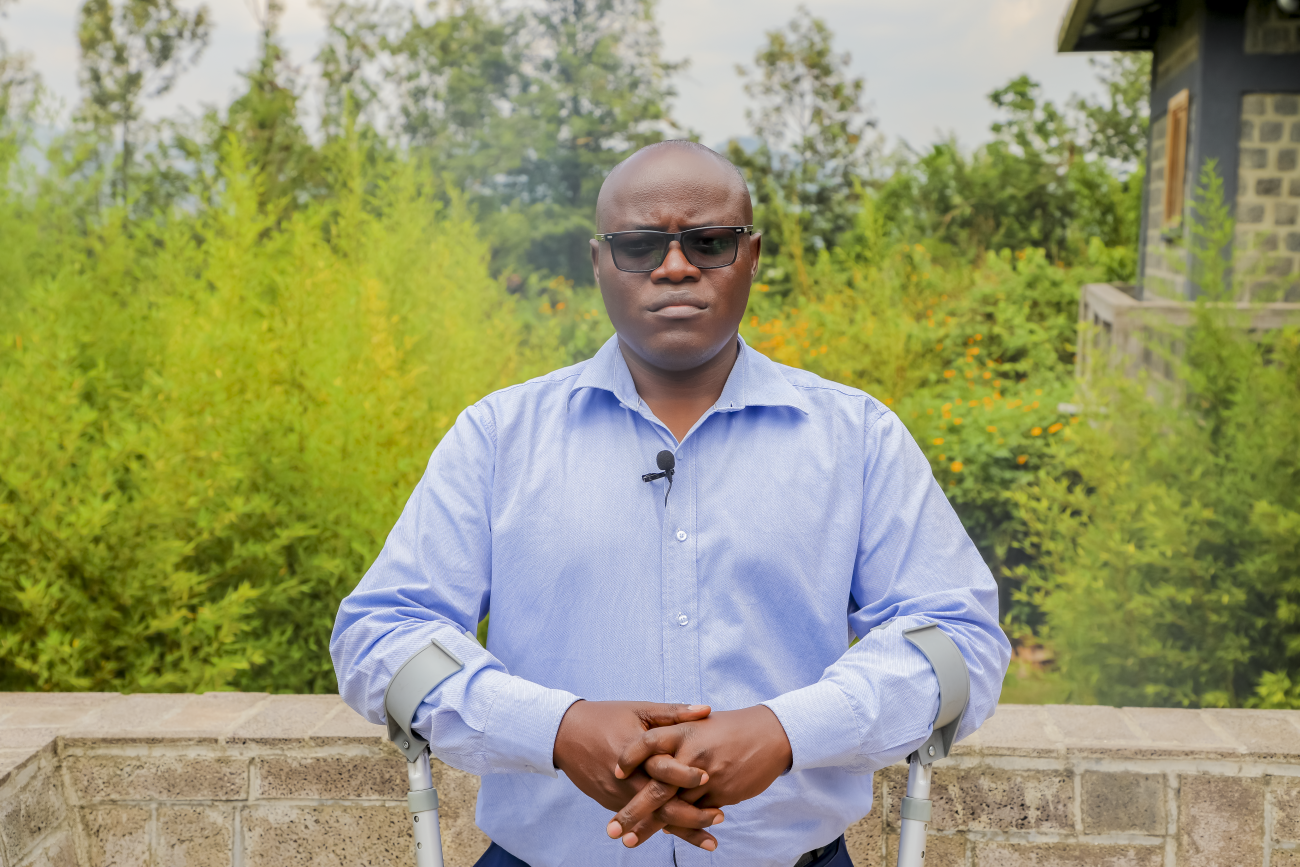Oswald's journey began shortly after birth when polio left his legs paralyzed. This presented many challenges, including mobility issues and societal exclusion. However, the biggest struggle was the lack of resources; his family couldn't afford a wheelchair. They improvised by creating makeshift solutions, digging holes in their home and garden to help him sit with stability.
Despite these challenges, Oswald's determination, resilience, and the unwavering support of his family propelled him forward as he pursued his education against all odds. He bravely confronted the isolation, stigma, and ignorance surrounding disabilities, mostly in environments that weren't designed for inclusivity.
His time at one university in a developed country was particularly challenging. The physical infrastructure was not designed with accessibility in mind, with buildings lacking ramps, elevators, and accessible restrooms. Students with mobility impairments like Oswald struggled to navigate campus, attend classes on upper floors, or even enter certain buildings.
The university also lacked inclusive policies and support services for students with disabilities. This led Oswald to embark on a mission to foster change. He founded an association, leveraging his roles within the student union to champion the introduction of accessible facilities at the university.
In Rwanda, the 2022 population and housing census revealed that there are over 390,000 persons with disabilities, comprising 3.4% of the total population. Despite strides in inclusivity, challenges persist in inclusion of Persons with Disabilities, including the scarcity of essential assistive technologies like wheelchairs and braille machines.
Oswald’s advocacy was hinged on responding to such challenges. He did not stop at university reform. When he returned to Rwanda, he founded an inclusive school in Kamonyi District, that started with just eight pupils in 2018 and has since grown to serve over 300 learners.
'‘Having disabilities should not be a barrier.’' Oswald says.
Today, Oswald extends his advocacy to a global stage, working passionately with the United Nations Children’s Fund (UNICEF) to champion the rights of Persons with Disabilities.
He shared his story at a transformative three-day retreat held in Musanze, Rwanda, which brought together government representatives, UN staff, civil society organizations, and development partners.
The aim was to address the challenges that Persons with Disabilities face and to fortify the collective push for disability inclusion. From lacking assistive technologies like braille machines and hearing devices to broader issues of accessibility and inclusion, which deny Persons with Disabilities the chance to fully participate in education, healthcare, and societal dialogue. To build on what different partners are already doing, participants committed to:
- Promote awareness and understanding of disability rights and issues to combat stigma, discrimination, and negative attitudes towards disabilities. This can be achieved through public education campaigns, awareness-raising events, and initiatives that highlight the contributions and capabilities of Persons with Disabilities.
- Advocate for the development and enforcement of policies, laws, and regulations that protect the rights of Persons with Disabilities and promote their full participation and inclusion in society. This may involve effective implementation of the policies in place and allocation of resources for disability-related programs and services.
In addressing the multifaceted challenges faced by the persons with disabilities requires collaboration and partnership among government agencies, civil society organizations and private sector, disability advocacy groups, and other stakeholders to coordinate efforts, share resources, and leverage expertise.
Today Oswald Tuyizere's story is more than just a narrative of overcoming personal plight; it's a clarion call for a world where disability does not dictate destiny. It invites us all to envision and work towards a society that doesn't just accommodate but celebrates diversity, ensuring that No One is Left Behind.






